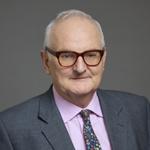Alternative Education
(asked on 13th December 2018) - View SourceQuestion to the Department for Education:
To ask Her Majesty's Government what plans they have to ensure that children and young people who enter alternative education provision are assessed by a speech and language therapist to determine whether they have speech, language and communication needs.
The Special Educational Needs and Disabilities (SEND) Code of Practice (2015) sets out high expectations of schools, alternative provision and colleges about how they identify and meet the needs of pupils with special educational needs (SEN), including those with speech, language and communication needs. The code emphasises that schools, including alternative provision, should work closely with their local authority and other providers to commission specialist services directly, such as speech and language therapists. This guidance is attached.
The code is clear that schools should take appropriate steps to identify and address any learning difficulties presented by a child. The support that will be provided for children and young people with SEN entering alternative provision, with or without an education, health and care plan, should be agreed as part of the commissioning process. To allow for continuity of support, mainstream and alternative providers should promptly share appropriate information on a child or young person’s SEN.
Commissioners of alternative provision should ensure that there is a clear plan for pupils’ progression and keep the arrangements under regular review so that they can be adapted in response to the needs of the child or young person. Where an alternative provider has concerns that a child or young person may have a speech and language difficulty that is not being appropriately supported, they should raise their concerns with the commissioner and agree how these potential needs will be assessed and supported.

